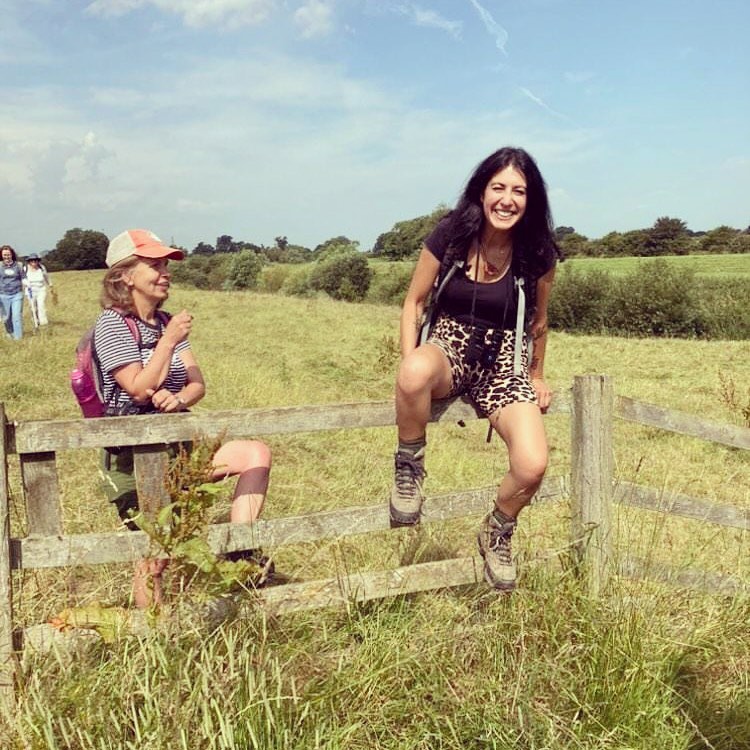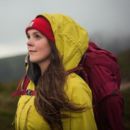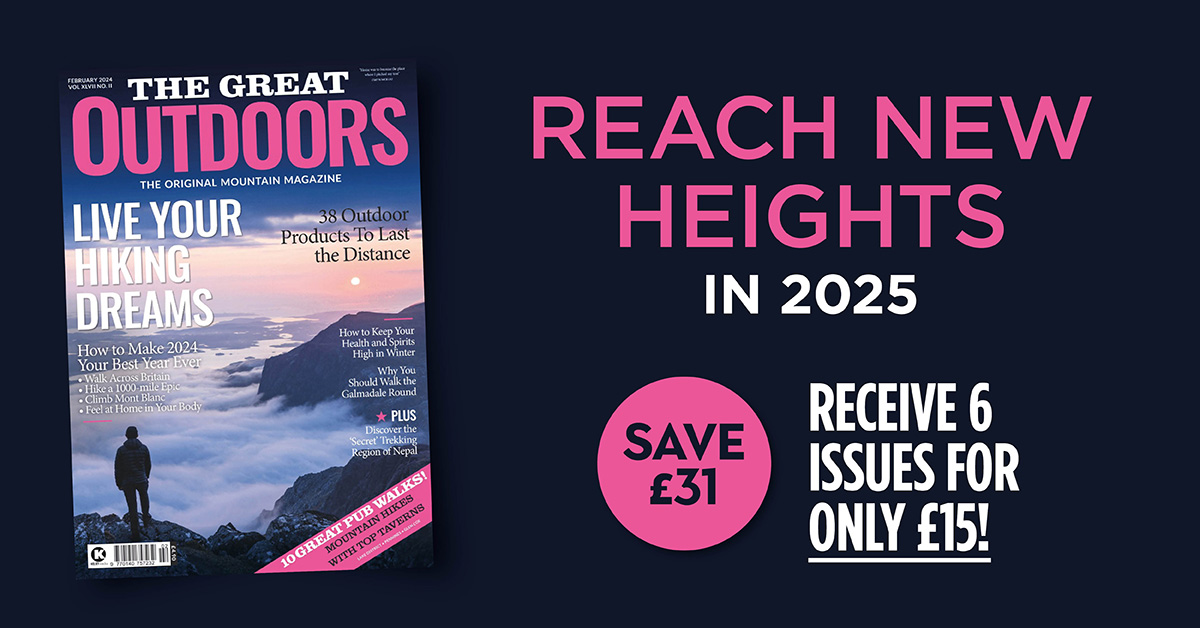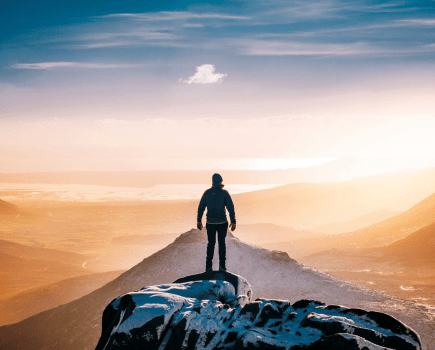Land justice campaigner, Lead of The Raven Network and podcaster, Nadia Shaikh is fighting for nature connection unbound by lines on a map.
In Nadia Shaikh’s ideal world, nature would be our default setting. The outdoors would not be a space simply “reduced to recreational use”. Here, true agency isn’t “following lines on maps”. It’s having enough curiosity to “follow the call of a blackbird or the path of a butterfly” and to care for our environment. Curiosity is how it began for Nadia growing up in Jarrow. On trips to seaside funfairs, she could be found “poking around” in tiny things; moss on a brick wall, midge larvae in stagnant water. Now 37 and living on the Isle of Bute, she says this hasn’t changed.
Main image: Nadia Shaikh hopping fences on a trespass in Yorkshire | Credit: @buteblackbird
But after almost two decades in nature conservation – a scientifically motivated sector “still governed by the very ideologies that separated humans from nature” – Nadia’s perception of the systems designed to save the natural world is different. Here she talks about the colonial legacies of the countryside, the endless selling of trinkets in gift shops, and finding kinship within the Right to Roam movement.
TGO: Can you recall some of your formative experiences outdoors?
Nadia: I grew up in a family that weren’t outdoorsy, so my experience with nature was passive rather than an activity we ever ‘did’. I grew up in Jarrow in the North East, so time visiting South Shields beach to get ice cream and go to the fun fair were some of my earliest memories. I noticed the small things around me; moss on a brick wall, midge larvae in stagnant water. I remember being drawn into the tiny things. They were little moments of wonder, curiosity and peace. When we were a bit older, we moved to the West Midlands. I remember I would always pick leaves and flowers from roadside plants on the way to and from school, whether it was conkers or peeling open galls on willow leaves with my fingernails. That little version of me was always poking around in things – and still is!
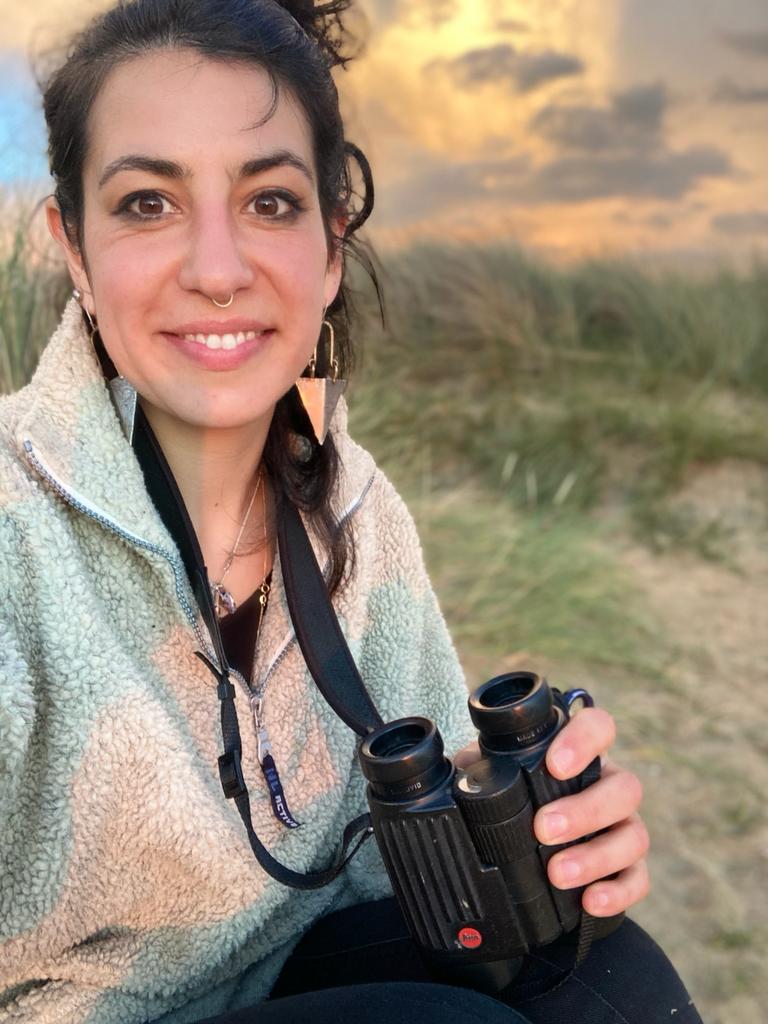
Birdwatching at home. Credit: Nadia Shaikh
It wasn’t until I was in my mid-teens that I actively sought out birds to watch. But crucially, the outdoors as a place for recreation still felt very distant to me. I never saw myself as a competent outdoors person, based on how everyone else looked and acted.
TGO: Your path has led to work aiming to decolonise nature conservation. What does an ideal society-wide relationship with nature look like to you?
Nadia: It looks like one where we all have agency to care for our environment. It looks like everyone having equitable access to nature and having a legitimate way to care for it. It looks like nature not always being described through the lens of a microscope or with scientific nomenclature. It looks like every child growing up understanding their responsibility to live alongside all non-human kin. This means swimming in rivers, growing food. It means being in nature as a default and not simply recreation or a space to push the body to extremes. It’s not following lines on maps, it’s being lead by the call of a blackbird or letting your curiosity follow the path of a butterfly.
TGO: In your experience, what’s preventing this from happening?
Nadia: There’s so much about the systems we live in that prevent this. For conservation specifically, it is still governed by the ideologies that separated humans from nature in the first place, which led to the devastating biodiversity loss we have now. Our system of ‘saving nature’ is one where humans are largely seen as the problem when, in reality, a child picking a wildflower or a crisp packet being blown out of a bin and getting stuck in a hedge is clearly not the reason we have lost millions of birds from our landscape.
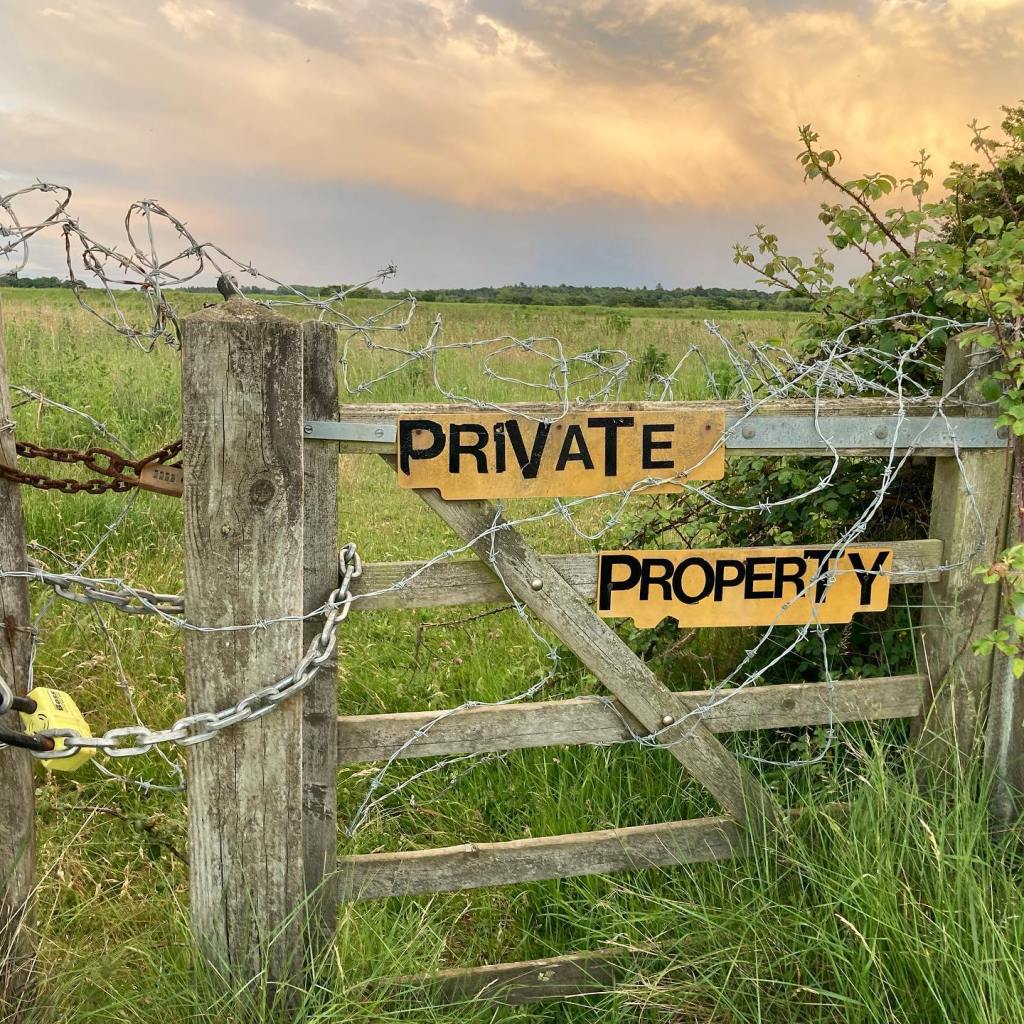
A sad state of affairs in Suffolk. Credit: Nadia Shaikh
Our system has divided the land into ‘the countryside’ and ‘the city’ where the former is a ‘place of business’. We were once all commoners and the land was common good. Now, it is now tightly governed by very few land owners and a government which has been happy to extract resources to the point of ecological collapse. We didn’t choose this – 92% of the land in England is locked away, we’re not allowed on it, so how are we supposed to intuitively and fully feel that we belong there? We lament that children know more brand logos that the shape of leaves, but what do you expect when essentially the way we see ‘nature’ is not ours and also is not ‘us’. There are now places for nature, and places not for nature, so we’re driving the wedge between us and nature even deeper.
TGO: When and how did you come to join the Right to Roam movement?
Nadia: When I joined to movement in 2021, I had been working in nature conservation for over 14 years. Increasingly, I came to realise that this sector was an institution that was gatekeeping knowledge and land. I was increasingly seen as the “diverse person” and drawn into issues around equality, diversity and inclusion. But the more I learned about the colonial legacies of the countryside and the connections to biodiversity loss, the more I spoke up about it and the more I felt silenced as a result.
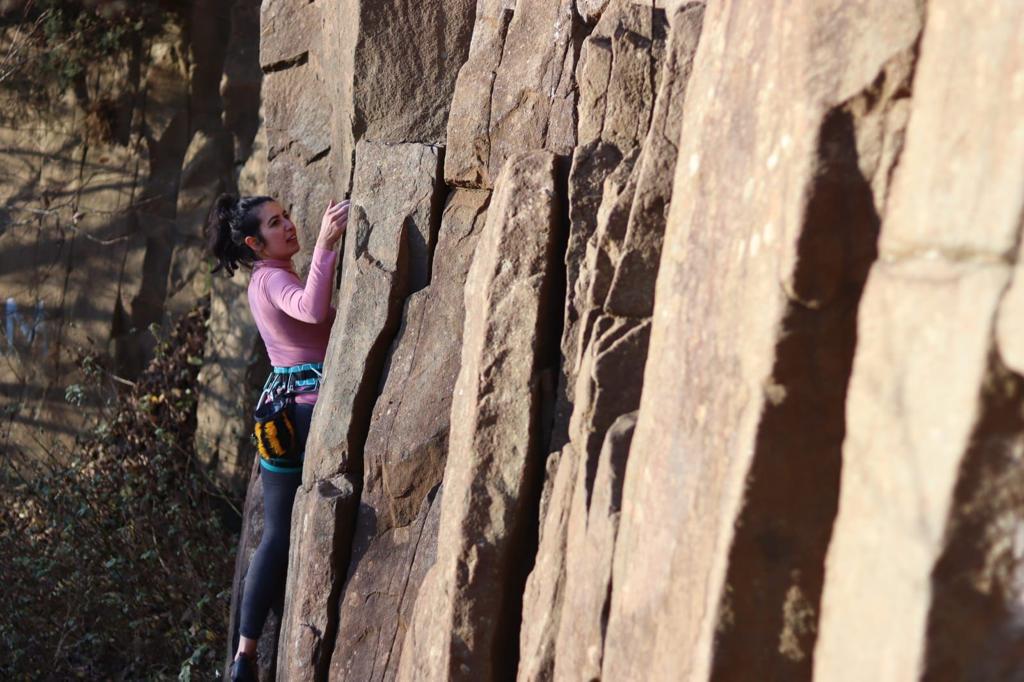
Nadia spending time on rock. Credit: Roxanna Barry
The sector is science-led, supposedly, but you can’t have science without heart. It leads to empty solutions and becomes a call for change while still gripping onto the status quo. I became frustrated with this duality of the cause: on the one hand wanting to ‘save nature’ and on the other hand, selling trinkets in shops, trying to grow economically all the time, reducing wildlife to statistics, increasing land ownership. The two didn’t match up. It felt rampant, unstoppable and the cognitive dissonance became unbearable. I contacted Guy Shrubsole from the campaign and poured my heart out at how the nature conservation problem was a land ownership problem, and the rest is history.
TGO: Can you describe some of the actions you take – and our readers could take – to champion the land justice revolution?
Nadia: There is so much people can do. For those new to the idea, I’d suggest taking some time to understand the issue. Read the Right to Roam website, consider the link between the concentrated land ownership in this country, the extreme biodiversity decline and the fact we have some of the worst nature connectedness in the world. How does that sit with you? Consider what worries you about everyone having equitable access to nature? Get outdoors and notice where you can and can’t go. Fully connected time in nature requires a bit of vulnerability, so let it move you and see how you feel as you move through the landscape. What’s missing? Where do you want to go but can’t?
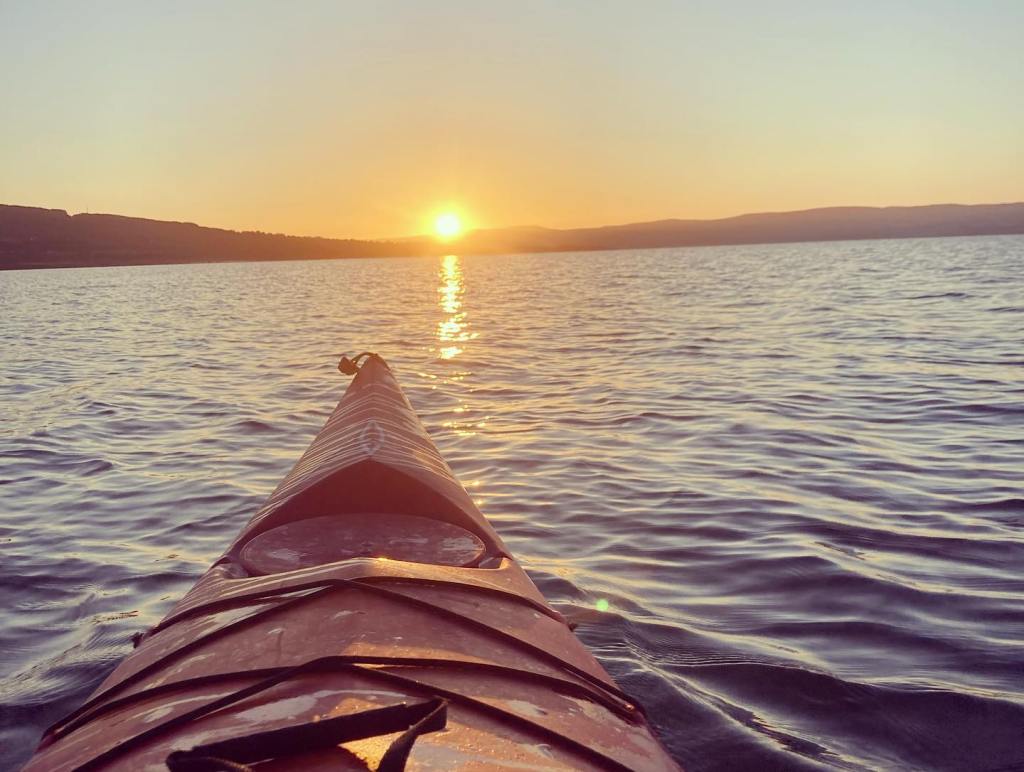
Kayaking at home. Credit: Nadia Shaikh
I’d encourage people to try trespass. Trespass until it no longer feels wrong, do it responsibly and leave a positive trace. For those people who are already leaning towards the idea of land justice, keep in touch with our campaign by joining the mailing list. We have loads of local groups popping up across England you could join. There’s also loads of great organisations looking at land justice from other angles, such as the Landworkers’ Alliance and Land in Our Names as well as the Outdoor Swimming Society and Trash Free Trails.
I think it’s important to let injustice move you, let it make you angry and start asking questions to those in power around you, and ask yourself what you have to offer. Small actions are never that small. It could be helping more people learn about wildlife in your local area, or offering to help community groups learn outdoor skills. You could give your voice or your skills; one amazing person who supports our campaign is rebuilding our website for us because they’re the skills he has to offer. A really useful action people can take right now is to sign our petition with 38 Degrees and to donate to the campaign too.
TGO: For you personally, why is it important to be able to get outdoors without worry or fear of oppression in any form?
Nadia: We shouldn’t be anywhere with fear of oppression – this is why people do activism, bang drums and make a fuss. But ultimately our systems oppress. The only way that I can understand that I belong is to feel my feet on the earth, to recognise the seasons changing and the bird calls around me. There’s no greater sense of belonging than having a meaningful connection to the land, and in a country that does have deep colonial roots and grapples with systemic (and direct) racism, this is vital. This cannot happen in a landscape where you don’t feel safe or welcome.
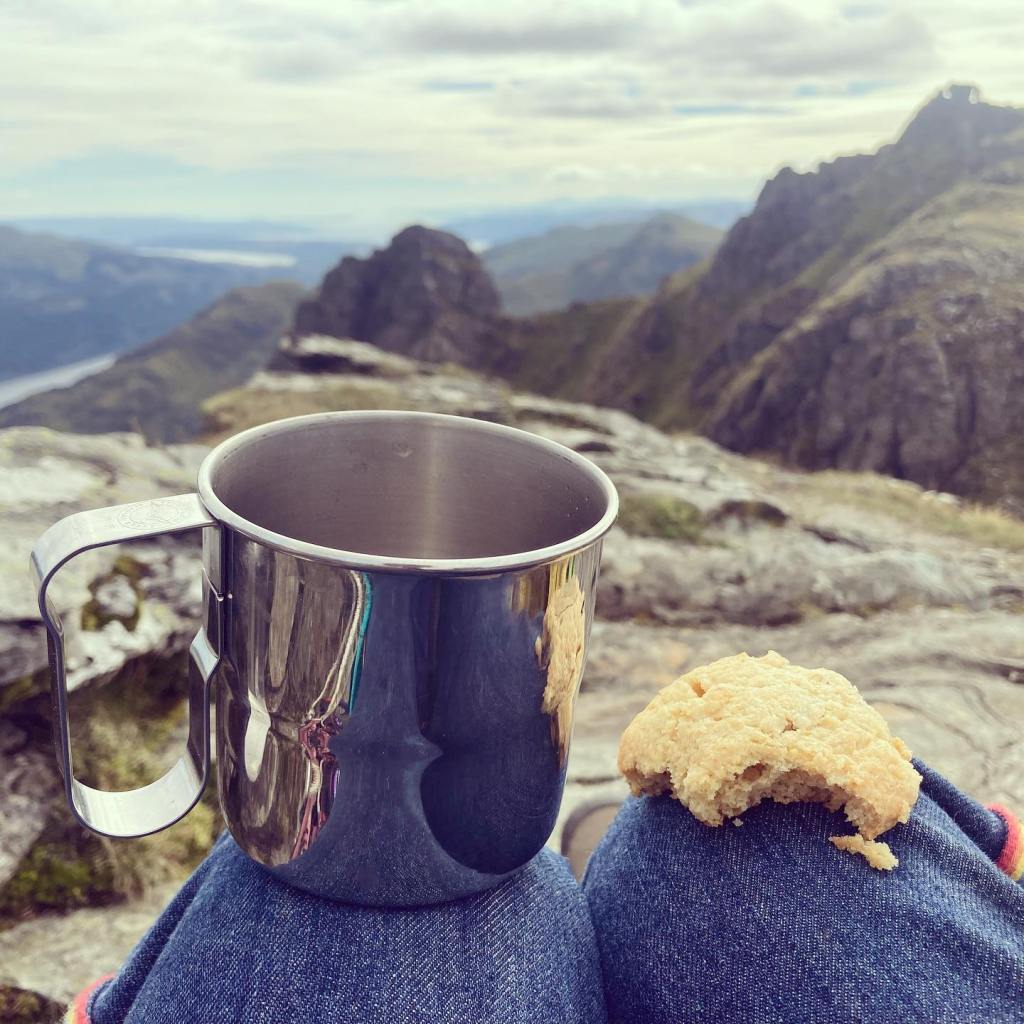
A tea break on The Cobbler. Credit: Nadia Shaikh
Much of England instils this feeling, whether that’s because the outdoors has become synonymous with ‘business’ or physical activity (for example, if you’re not from farming stock or wanting to follow a line on a map, it’s not for you), or because so much is physically off limits or because car parks at honeypot sites are heaving at weekends. As I mentioned earlier that vulnerability is a requirement to let nature move you, and you can’t be vulnerable while worrying you don’t belong, not truly.
TGO: What we can expect from the campaign in the future?
Nadia: People are starting to wake up to the inequity in how people access nature, and how vital it is. I am generally an optimistic person. Despite the painful statistics about land access and biodiversity, I believe this can change. Alexander Darwall [the wealthy landowner who challenged the map, produced by the Dartmoor National Park Authority (DNPA), which showed a right to camp on Stall Moor common] going back to court tells us one thing: enclosure is still very live and current, not a thing of the past. Thousands of people have stood up to say this is not okay. What we need now is for more people to start questioning why Dartmoor was the only place in England that we can wild camp, and to get angry about it and to turn that anger into action.
The reason we have the CRoW Act is because people called for more access decades ago – it was never given freely. More and more people every day are getting educated about land justice and it feels powerful. I am lucky that I have surrounded myself with people and wildlife that holds me regularly in my grief for what has happened to this land, through that work I have the strength to keep campaigning and fighting. And I won’t stop.
You can follow Nadia @buteblackbird on Instagram and learn more about land justice via Right to Roam.

